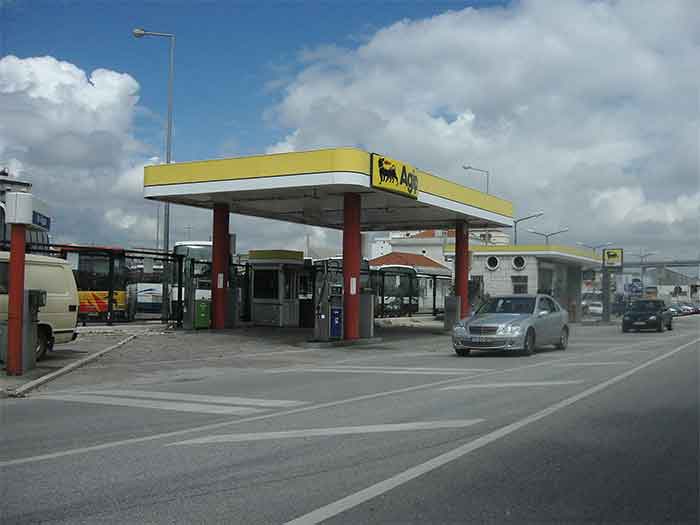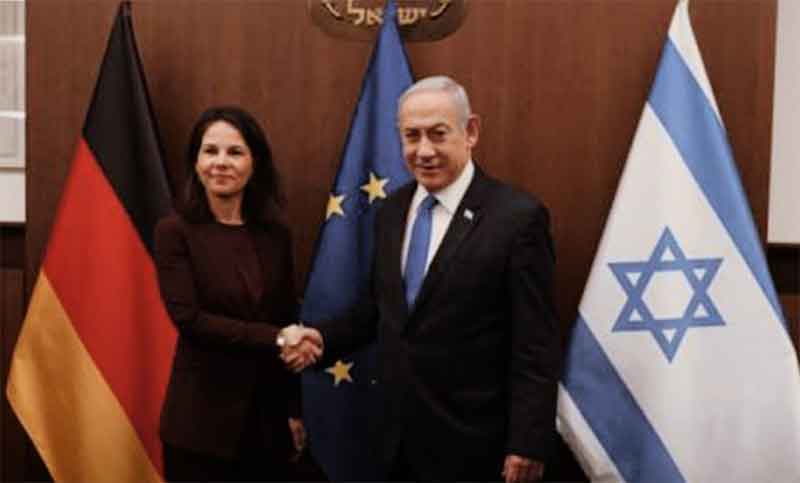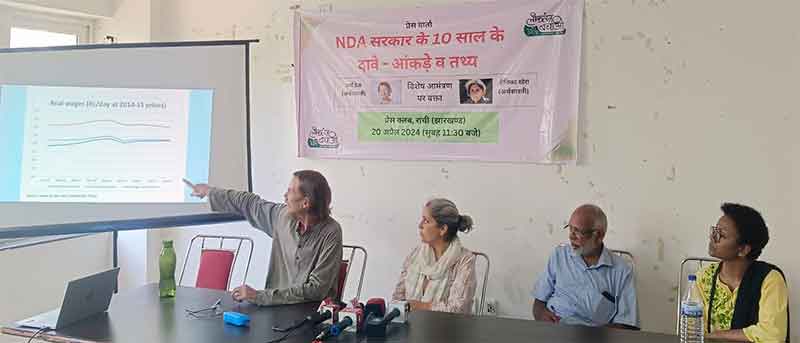
Car-free Sundays in cities, working from home up to three days a week and using cost-efficient public transport – are just some of the recommendations made by the International Energy Agency (IEA) to the world. The 10-point action plan aims at cutting back on oil consumption “in the face of the emerging global energy crisis triggered by Russia’s invasion of Ukraine.”
According to IEA estimates, the actions it suggests, should they be implemented globally, could help reduce oil consumption by 2.7 million barrels per day (bpd) within four months, which would be equivalent to more than half of Russia’s exports. It is estimated that the world consumes nearly 100 million barrels daily.
Among the measures to be implemented immediately, especially by developed nations, are the reduction of speed limits on highways by at least 10 kilometers per hour, as well as car-free Sundays, with every such day helping to save approximately 380,000 barrels of oil, the IEA claims.
In its plan, the IEA points out that besides reducing the “price pain being felt by consumers around the world,” the suggested measures could also help “shrink Russia’s hydrocarbon revenues, and help move oil demand towards a more sustainable pathway.”
After Ukraine, how will the world replace Russia’s oil products?
Russia produces about 10m bpd and exports about half of that plus about 3m bpd of oil products.
The IEA thinks that at least 1.5m bpd of oil and 1m bpd of oil products are likely to be lost from Russia, from April until at least the end of the year, as buyers either reject supplies voluntarily or do so to avoid breaching sanctions. It says: “These losses could deepen should bans or public censure accelerate.”
“In reality, no one country can plug the hole that Russia would leave in the market in the event of a global ban,” says Sophie Udubasceanu, global crude oil expert at energy market analysts ICIS. So where can the world try to source anything up to 5m extra barrels of oil a day?
Saudi, with 2m bpd spare, and the United Arab Emirates with 1.1m bpd are the only two leading oil producers with immediate spare capacity to offset a Russian shortfall. As the IEA notes, however, they are so far “showing no willingness to tap into reserves”.
Both are members of the Opec+ cartel of oil-producing countries, which meets again on 31 March to decide on output levels. OPEC members agreed to raise output by a modest 400,000 bpd earlier this month, despite full knowledge of the Ukraine situation.
A Saudi/UAE increase including their spare capacity would “potentially lead to the demise of the Opec+ cooperation”, says Saxo Bank analyst Ole Hansen, signaling such a move is unlikely.
He also points out that no oil producer would ever max out their spare capacity, the maintenance of which is an important price stabilizer and a buffer in case of unforeseen disruption.
The IEA reckons Iran has about 1.2m bpd of spare capacity in theory but there are some serious caveats. The first is the need for sanctions to be lifted, via a resolution in talks between Tehran and western economies about reviving the 2015 deal on Iran’s nuclear ambitions. Even then, the IEA says, it is likely to take another six months at least before 1m bpd from Iran could be factored in.
Iran has 100m barrels in floating storage that could be accessed quickly but it would take months to feed into the global supply chain.
Like Iran, Venezuela remains subject to U.S. sanctions that would have to be lifted if its production was to increase. A return to 2015 output would mean an extra 1.8m bpd eventually but that would trickle through very gradually.
“A few hundred-thousand barrels would be the initial impact with a continued recovery likely to take years and billions of dollars of new investments,” says Hansen.
“US exports have been rising most of 2021, peaking in December at 3.45m bpd, when not threatened by hurricanes or power outages,” says Udubasceanu, who sees little chance of a rapid acceleration in that trend.
Hansen agrees, saying an extra 0.5m bpd could be added if US shale output were to return to its 2019 peak but that this would be held up by ongoing shortages of sand, truckers, fracking crews and rigs.
Nor would the uplift be fast. Rystad Energy, a research company, estimates an average time of eight months from spudding (starting) a new well to oil flowing to market.
Nigeria is still 0.4m bpd below its 2019 peak output, says Hansen. Restoring that level would require investment from major oil companies and greater political stability. The IEA also cites Canada and Argentina as potential contributors via their own US-style shale resources, but nothing that would move the needle. It does not even mention the North Sea in its assessment of alternative supply sources.
Germany’ concerns over gas suppliers
Germany’s vice chancellor has said that next winter’s gas supplies to his country have not so far been secured. Robert Habeck, who also serves as the economy and climate minister, hasn’t ruled out there being a so-called domino effect, with a setback in the gas supply chain causing a knock-on shortage in other facilities.
“If we don’t receive further gas supplies … and the deliveries from Russia are capped or stopped, we wouldn’t have enough to keep all our houses warm and to keep all our industry running,” Habeck said, in an interview with the German radio station Deutschlandfunk.
The warning comes as he visits the Persian Gulf, which began on Saturday. In Qatar, one of the world’s largest exporters of liquefied natural gas, Habeck was scheduled to meet with the emir, Sheikh Tamim bin Hamad Al Thani, and other government officials. On Monday, he is expected to participate in talks with United Arab Emirates ministers.
The visit is part of Germany’s efforts to diversify its gas imports as it seeks to reduce its dependency on Russia in the wake of the latest escalation in the conflict with Ukraine. Earlier this week, Habeck traveled to Norway on a similar mission.
South Korea Seeks To Continue Trade With Russia Despite Sanctions
South Korea plans to open temporary settlement lines between domestic banks and their units in Russia in order to help local firms finance trade that has been made difficult by international sanctions against Russia, Yonhap News Agency reported on Friday.
The measure – to be introduced at the end of this month – is aimed at minimizing the use of global intermediary banks that avoid dealing with Russia due to sanctions, causing the transactions to be delayed or rejected.
“The method is expected to enable swift payments as it will minimize the use of intermediary banks,” Yonhap quotes from a statement by the Financial Services Commission (FSC).
The new settlement lines, however, will not be used for transactions with Russian banks or to trade in items that are on the list of global sanctions against Moscow.
Last December, trade between Russia and South Korea was reported to have increased by nearly 60% as economies started to recover from the Covid-19 pandemic, totaling roughly $22 billion in the first nine months of 2021. The biggest areas of cooperation included energy, transport, agriculture and health-care sectors.
South Korea joined the US, the EU and other nations in imposing sanctions against Russia, banning transactions with Russia’s Central Bank, introducing export controls and removing Moscow from the SWIFT global payment system, among other measures.
Canada Has ‘Exhausted’ Its Stock Of Weapons
Canada has depleted its own stock of weapons in its bid to support Ukraine, Canadian Defense Minister Anita Anand has acknowledged.
“I believe that we have exhausted our inventory to the extent that we are able to provide [more] weapons,” Anand said during a live appearance on CBC on Friday.
“There are capacity issues we need to make sure we are on top of for the purposes of ensuring the Canadian Armed Forces are well resourced,” she added.
Canada is among Western countries that have provided Ukraine with so-called “lethal aid.” It has so far sent or is in the process of sending 4,500 rocket launchers, 7,500 hand grenades, 100 anti-tank launchers with 2,000 rounds, two C-130J tactical aircraft, and various other pieces of kit from Canada.
Russia Fires Hypersonic Missiles In Ukraine
The Russian military has said it used its state-of-the-art Kinzhal hypersonic missiles to destroy an arms depot near the city of Ivano-Frankivsk in western Ukraine.
The strike with the air-launched missile system took place on Friday, Russian Defense Ministry spokesman Igor Konashenkov said during a briefing.
It targeted “a large underground depot of missiles and aerial munitions of the Ukrainian forces” in the village of Deliatyn, he added.
Kinzhal, which means ‘dagger’ in English, was used by the Russian military for the first time since the start of the Ukrainian conflict on February 24.
Those munitions are said to be able to penetrate any existing air defenses by traveling at a whopping speed of up to Mach 10 and constantly maneuvering during their flight.
Deutsche Bank Urges Hold-off On New Anti-Russian Sanctions
Deutsche Bank CEO Christian Sewing has urged European authorities to take their time when it comes to escalating sanctions against Russia over the military standoff in Ukraine, saying that the measures may have negative impact on the bloc as well.
“We should first let the announced sanctions take effect,” Sewing said, in an interview with Welt am Sonntag, adding that the penalties have been causing enormous damage to the Russian economy.
“However, these sanctions also have a negative impact on us, and we must endure this,” the head of Germany’s largest financial institution said, adding states should be thinking “again and again” before introducing tougher ones.
Sewing stressed that any decision to be taken by European authorities would be supported.
The top manager also criticized the latest proposal to shut down the Nord Stream 1 gas pipeline, as such a development would pose a threat to the energy security of the entire bloc.
“If we curtail Nord Stream 1, although this will not mean the end of Russian gas supplies to Germany, this will soon lead to serious problems with energy supply, and a significant increase in prices in our country,” Sewing said.
In February, Poland’s Prime Minister Mateusz Morawiecki asked operators of the Nord Stream 1 natural gas pipeline, which carries more than a third of Germany’s natural gas imports, to shut the route down. German energy giant E.ON, which operates the pipeline, has rejected the calls.
Ukraine Backtracks On Mariupol Theater Claims
More than 200 civilians have been rescued unharmed from the bombed Mariupol Drama Theater, in Ukraine, and one injured woman has been taken to hospital, the local deputy mayor told reporters on Friday. Initial claims from Kiev estimated that over 1,000 people may have been killed in what they alleged was a Russian airstrike.
Ukrainian media announced on Wednesday that the Drama Theater – located on the main square of the city – had been struck by the Russian air force while civilians were sheltering inside. The declaration was widely amplified by Westerners on social media.
By Thursday morning, however, reports switched to saying that those civilians had survived, with a journalist from expat journal the Kyiv Independent calling it a “miracle.”
On Friday, Deputy Mayor Sergey Orlov told Human Rights Watch that more than 200 people have so far been rescued from the rubble unharmed, but one woman had been taken to hospital with injuries. Earlier in the day, Ukraine’s human rights commissioner, Lyudmila Denisova, told reporters that some 1,300 civilians had been trapped inside.
Responding to the Ukrainian accusations on Wednesday, the Russian military said none of its planes had carried out any ground attacks in Mariupol that day, and the theater had not in any case been on its list of targets.
“Previously, it was known from the refugees who got out of Mariupol that the Nazis of the Azov Battalion might be holding civilians hostage in the theater building, using the upper floors as firing points,” military spokesman Major-General Igor Konashenkov said at the time. He added that what he described as “reliable information” from locals had indicated that the militants might have blown up the building to try to pin the blame for any civilian deaths on Russia.
Russia says Mariupol is the stronghold of Azov, the notorious Ukrainian militia that uses as its emblems Waffen-SS symbols and other iconography of Nazi Germany. The city has been surrounded by Russian regular troops and those of the Donetsk People’s Republic, a breakaway region Moscow recognized as independent in February.
European Sanctions Against RT, Sputnik Raise ‘Questions,’ Says Norway
Norway has signed a package of anti-Russian sanctions into a law, joining the U.S.-led wave of restrictions imposed over the ongoing conflict between Russia and Ukraine, the country’s Minister of Foreign Affairs Anniken Huitfeldt announced Friday. So far, however, Oslo has abstained from targeting Russian state-owned and state-affiliated media outlets.
“Today, the most wide-ranging package of sanctions ever imposed by Norway has been incorporated by the Government into Norwegian law. The sanctions are a response to Russia’s illegal attack on Ukraine and also an expression of Norway’s solidarity with the Ukrainian people,” Huitfeldt said in a statement.
The restrictions imposed by the European nations on RT and Sputnik have not been incorporated into the package yet, the minister noted. The sanctions against the media outlets need further assessment by Norway’s authorities, she explained without elaborating on exactly what questions the said restrictions had attracted.
“This first package of sanctions, now formally adopted by Royal Decree and by the Ministry, corresponds to the restrictive measures imposed by the EU up to and including 9 March 2022,” Huitfeldt said. “The EU sanctions against Russia Today and Sputnik are an exception, and have not been included in this first package. The sanctions against these outlets raise questions of principle and we need to take the time to assess this thoroughly.”
Media outlets RT and Sputnik were targeted as well, having been accused by the bloc of spreading “harmful disinformation” amid the conflict, with European Commission President Ursula von der Leyen branding them a part of “the Kremlin’s media machine.”
Russia’s Case Must Be Heard For New Security Architecture, Says Turkish official
A TASS report said:
Moscow’s case must be heard as part of a new security architecture established between Russia and the Western bloc, Ibrahim Kalin, a chief adviser and spokesman for President Recep Tayyip Erdogan of Turkey, said in an interview with New York Times published on Saturday.
According to him, “the Russian case must be heard, because after this war, there will have to be a new security architecture established between Russia and the Western bloc”
“We cannot afford another Cold War — it will be bad for everyone and costly for the entire international political and financial system,” Kalin said as quoted by the newspaper.
“Every decision we make, every step we take now with regards to Russia militarily, politically, economically and otherwise, will have an impact on that new security architecture,” he added.
















































